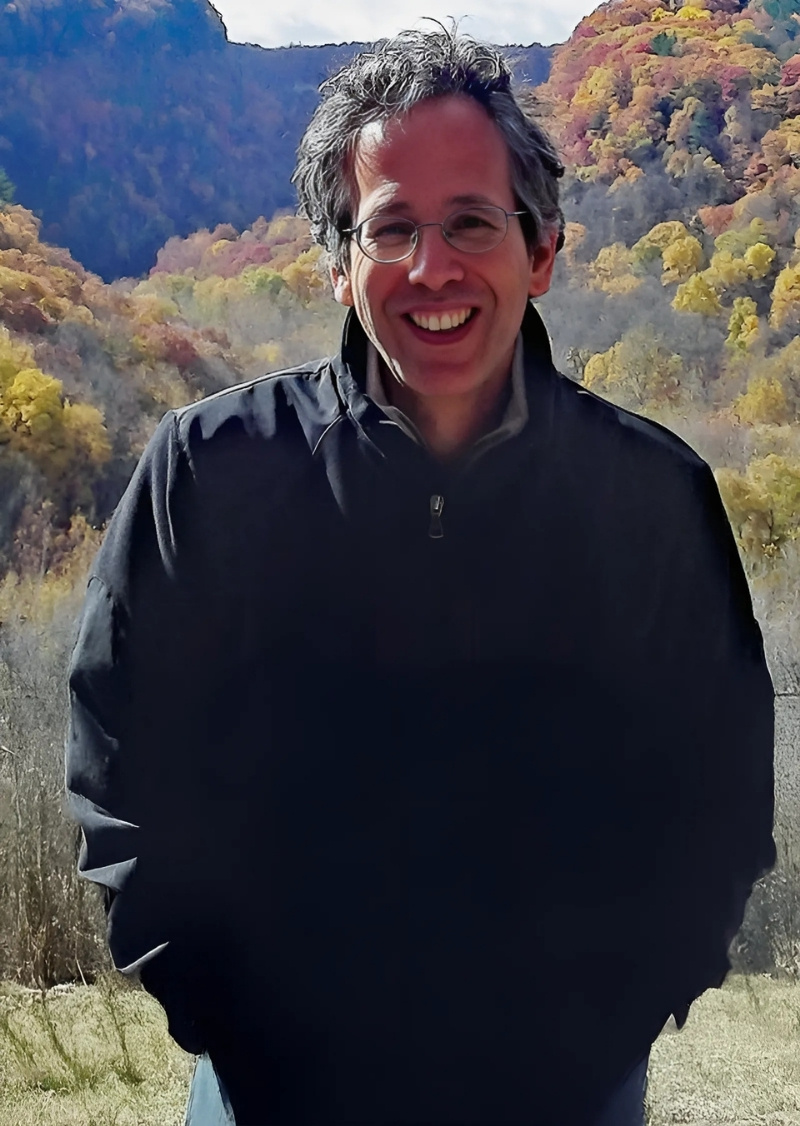
Barry Lyons
Associate Professor, Cultural Anthropology
313-577-2935
313-577-5958 (fax)
3025 Faculty/Administration Building
Website(s)
Media
Department
Barry Lyons
I grew up in Massachusetts, majored in history and political science at Washington University, and lived in a village in the Ecuadorian Andes for two years as a Peace Corps volunteer. Having fallen in love with Ecuador, I pursued graduate work in anthropology at the University of Michigan and spent another three years in Ecuador conducting dissertation research. After receiving my doctorate, I taught at the University of the South (Sewanee) before joining the Wayne State Anthropology Department in 1999. I have enjoyed teaching a diverse range of students at WSU in courses from Introductory Anthropology to advanced graduate seminars.
Research interest(s)/area of expertise
-
- Climate change, climate communication, private-sector decarbonization
- Religion (Catholic liberation theology, evangelical Christianity, indigenous Andean religion)
- Agrarian class relations, hacienda system, agroecology
- Race, ethnicity, indigenous movements, mestizaje
- Language and exchange
-
Research
I am a sociocultural anthropologist whose research has mostly focused on agrarian class relations, ethnicity, and religion in highland Ecuador. Since 2016, I have turned my attention to climate change, with a focus on how evangelical Christians in the United States and Ecuador experience and respond to it. This has resulted in an award-winning documentary film that presents the spiritual journey and climate testimony of a conservative homeschooling mom in Virginia, VIRGINIA'S CALLING. The film is part of a public engagement project developed in close consultation and collaboration with evangelical Christian leaders.
Much of this work is driven by a passion for telling human stories that can spark empathy and reflection. For example, "Ojos de Respeto"/"Eyes of Respect" is a short essay recounting some Ecuadorian children's experiences of colorism, published in an Ecuadorian newspaper magazine supplement and shared with students from diverse backgrounds in my classes in Detroit. My book, Remembering the Hacienda, centers indigenous Ecuadorians' first-person accounts of life on haciendas, while "Aurelio's Song" tells of indigenous self-affirmation in the post-hacienda period. The same interest in human stories shapes my film work with evangelical Christians grappling with climate change in highland Ecuador and coastal Virginia.
Education
- B.A. in History and Political Science (Summa Cum Laude), Washington University in St. Louis, 1980
- M.A. in Anthropology, University of Michigan, 1988
- Ph.D. in Anthropology, University of Michigan, 1994
Awards and grants
- 2023: President's Award for Excellence in Teaching, Wayne State University
- 2021: Wayne State University College of Liberal Arts, Teaching Innovation, Development and Excellence (TIDE) Award, "Virtual Ethnographic Field School in Highland Ecuador"
- 2018: Wayne State University Sabbatical Award (Fall 2019)
- 2018: WSU Arts & Humanities Research Support grant, “Climate Change and Evangelical Christians: Public Engagement through Film”
- 2011: Humanities Center Faculty Fellowship, “More or Less White: Mestizo Identities and ‘Post-racial’ Multiculturalism in Ecuador”
- 2009: Wayne State University Sabbatical Award (for 2009-2010), "More or Less White"
- 2009: ACLS/SSRC/NEH International and Area Studies Fellowship
- 2008: Wayne State University Board of Governors Faculty Recognition Award
- 2007-08: Wayne State University Humanities Center Resident Scholar
- 2006: Wenner-Gren Foundation for Anthropological Research
- 1993: Charlotte W. Newcombe Doctoral Dissertation Fellowship (Woodrow Wilson Foundation)
- 1989: SSRC-ACLS International Doctoral Research Fellowship
- 1984-88: National Science Foundation Graduate Fellowship
Selected publications
- 2023. "Expanding Student Access to Field Experiences: Virtual Ethnographic Field Schools." Anthropology and Education Quarterly. anthrosource.onlinelibrary.wiley.com/doi/10.1111/aeq.12482?af=R
- 2020. VIRGINIA'S CALLING (30-minute film). Online, virginiascalling.org
- 2018. “El respeto y la teología de la liberación: Religión, autoridad e identidad en Chimborazo en los 1990,” in Juan Illicachi, Lenin Garcés and Rómulo Ramos, eds., Religión: Protestantismo y catolicismo indígena, desde una perspectiva antropológica. Riobamba: Universidad Nacional de Chimborazo
- 2016. Sociedad, cultura e interculturalidad en Chimborazo. Quito: Editorial Abya-Yala
- 2013. “Esquemas de identificación mestiza: Continuidades, cambios, y posibilidades de solidaridad étnica.” Ecuador Debate (Quito) 88 (abril):51-68
- 2009. “Simple People,” in Steve Striffler and Carlos de la Torre, eds., The Ecuador Reader. Durham: Duke University Press, pp.403-414
- 2006. Remembering the Hacienda: Religion, Authority, and Social Change in Highland Ecuador. Austin: University of Texas Press
- 2005. “Discipline and the Arts of Domination: Rituals of Respect in Chimborazo, Ecuador.” Cultural Anthropology 20(1):97-127
- 2002. “‘To Act Like a Man’: Masculinity, Resistance, and Authority in the Ecuadorian Andes.” In Lessie Jo Frazier, Rosario Montoya, and Janise Hurtig, eds., Gender’s Place. Palgrave Macmillan: New York. pp.45-64
- 2002. “Aurelio’s Song.” In Linda Walbridge and April Sievert, eds., Personal Encounters: A Reader in Cultural Anthropology. McGraw Hill: New York, pp.157-162
- 2001. "Religion, Authority, and Identity: Intergenerational Politics, Ethnic Resurgence, and Respect in Chimborazo, Ecuador." Latin American Research Review 36(1):7-48
- 1999. "'Taita Chimborazo and Mama Tungurahua': A Quichua Song, A Fieldwork Story." Anthropology and Humanism 24(1):1-14
Courses taught by Barry Lyons
Winter Term 2025
Fall Term 2024
- ANT3540 - Cultures and Societies of Latin America
- LAS3540 - Cultures and Societies of Latin America
- ANT7005 - Proseminar in Anthropology I
Fall Term 2023
- LAS3540 - Cultures and Societies of Latin America
- ANT3540 - Cultures and Societies of Latin America
- ANT7005 - Proseminar in Anthropology I